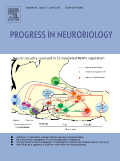
GENES BRAIN AND BEHAVIOR
metrics 2024
Innovating Research at the Intersection of Genetics and Behavior
Introduction
GENES BRAIN AND BEHAVIOR is a leading journal published by Wiley that focuses on the intricate interplay between genetic factors and behavioral neuroscience. With a robust ISSN of 1601-1848 and an E-ISSN of 1601-183X, this journal serves as a premier platform for innovative research that spans across multiple fields including genetics, neurology, and behavioral neuroscience. Recognized for its significant impact with a 2023 categorization of Q1 in Behavioral Neuroscience and Q2 in both Genetics and Neurology, GENES BRAIN AND BEHAVIOR asserts itself as an influential resource for scholars, practitioners, and students alike, facilitating the advancement of knowledge in these dynamic areas. Its Scopus rankings underscore its prominence—ranking #18 in Behavioral Neuroscience and #45 in Neurology, placing it in the top percentiles among its peers. Although not an open-access journal, the rigorous peer-review process ensures high-quality publications, pivotal for those pursuing cutting-edge research and applications. With a history of convergence from 2002 to 2024, this journal continues to foster academic dialogue and discovery in the ever-evolving landscape of brain and behavioral studies.
Metrics 2024
 1.04
1.04 2.40
2.40 2.90
2.90 102
102Metrics History
Rank 2024
Scopus
IF (Web Of Science)
JCI (Web Of Science)
Quartile History
Similar Journals

Behavioral and Brain Functions
Exploring the Intricacies of NeuroscienceBehavioral and Brain Functions is a leading Open Access journal published by BMC, dedicated to advancing the field of behavioral neuroscience, cognitive neuroscience, and biological psychiatry since its inception in 2005. This esteemed journal, based in the United Kingdom, has established itself as a vital resource for researchers and professionals, boasting a remarkable influence demonstrated by its Q1 and Q2 rankings across multiple relevant categories. With its commitment to providing unrestricted access to high-quality research, the journal facilitates the dissemination of significant findings in understanding the complex interactions between behavior and brain function. The journal ranks impressively within the Scopus database, positioning itself among the top-tier publications in its categories, making it an essential platform for academic discourse and innovation. As it converges through 2024, Behavioral and Brain Functions continues to play a crucial role in shaping the forefront of neuroscientific inquiry, inviting contributions that challenge our understanding and promote further exploration in these dynamic fields.

Frontiers in Behavioral Neuroscience
Unlocking the Secrets of Behavior through Neuroscience.Frontiers in Behavioral Neuroscience is a distinguished journal published by FRONTIERS MEDIA SA, specializing in the intricate relationship between behavior and the underlying neural processes. Established in 2007, this Open Access journal, based in Switzerland, aims to disseminate high-quality, peer-reviewed research that spans both Behavioral and Cognitive Neuroscience, as well as Neuropsychology and Physiological Psychology. With an impressive ranking in the top quartiles of these categories—Q2 in Behavioral and Cognitive Neuroscience and Q1 in Neuropsychology—this journal plays a pivotal role in advancing the understanding of complex behavioral phenomena through a neuroscientific lens. The journal's commitment to open accessibility ensures that groundbreaking findings are available to a wide audience, facilitating collaboration and innovation within the scientific community. As the field continues to evolve, Frontiers in Behavioral Neuroscience remains at the forefront, supporting researchers, professionals, and students alike in their pursuit of knowledge and understanding in this dynamic discipline.

PROGRESS IN NEUROBIOLOGY
Leading the Charge in Neurobiological DiscoveriesPROGRESS IN NEUROBIOLOGY is a prestigious journal dedicated to advancing the field of neuroscience, published by Pergamon-Elsevier Science Ltd. With an impressive impact factor, it stands as a critical resource for researchers, professionals, and students alike, featuring rigorous peer-reviewed articles that explore the latest developments in neurobiology. The journal has established itself as a leading publication, ranked in the Q1 category for Neuroscience (miscellaneous) and holding a notable 13/113 rank in General Neuroscience per Scopus metrics, placing it in the top 12% of its field. Since its inception in 1959, PROGRESS IN NEUROBIOLOGY has covered a wide array of topics, from molecular mechanisms to cognitive processes, fostering a comprehensive understanding of brain functions. While the journal is not open access, it ensures accessibility to profound knowledge through institutional subscriptions. Researchers and scholars will find critical analyses and innovative research that are pivotal for both foundational knowledge and cutting-edge investigations in the neuroscience realm.

TRENDS IN NEUROSCIENCES
Illuminating Pathways in Brain ResearchTRENDS IN NEUROSCIENCES, published by CELL PRESS, is a leading journal in the field of neuroscience, offering cutting-edge insights and important developments in the rapidly evolving landscape of brain research. With an impressive Impact Factor and ranking in the top quartile (Q1) of the category for Neuroscience (miscellaneous), it is positioned as a vital resource for researchers and professionals seeking to stay abreast of the latest discoveries and trends from 1978 to the present. Specifically ranked #3 out of 113 in General Neuroscience by Scopus, this journal promotes the interdisciplinary exchange of ideas and knowledge, making it an essential platform for students and experienced scholars alike. Although it is not an Open Access journal, its value lies in its rigorous peer-review process and commitment to maintaining the highest standards of academic integrity. By continuing to explore the complexities of neural processes and behavior, TRENDS IN NEUROSCIENCES plays a crucial role in shaping the future of neuroscience research and education.

BRAIN RESEARCH
Connecting clinical insights with fundamental research.BRAIN RESEARCH is a premier journal published by Elsevier, specializing in the intricate domains of neuroscience, developmental biology, and molecular biology. Established in 1966, this esteemed publication has become a cornerstone for researchers, professionals, and students dedicated to advancing our understanding of brain function and disorders. With an impressive impact factor and a consistent presence in the Q2 quartiles across key categories—such as Developmental Biology, Neurology, and Neuroscience—it stands out as an essential resource for disseminating innovative research and pioneering insights. The journal's scope encompasses both clinical and fundamental studies, fostering a multidisciplinary approach to the complexities of neural systems. Although it is not an open-access journal, BRAIN RESEARCH provides a vital platform for sharing progressive findings that can inspire future studies and contribute significantly to the evolutionary discourse in neuroscience. Based in the Netherlands, at RADARWEG 29, 1043 NX AMSTERDAM, BRAIN RESEARCH continues to shape the landscape of neuroscience research, inviting submissions that explore the latest discoveries and therapeutic strategies.

EPILEPSY & BEHAVIOR
Elevating the discourse on epilepsy and its behavioral implications.EPILEPSY & BEHAVIOR is a premier journal dedicated to advancing the field of neurology and behavioral neuroscience, published by Academic Press Inc. Elsevier Science. With a focus on the complex interplay between epilepsy and behavioral disorders, this journal serves as a pivotal platform for researchers, clinicians, and educators alike. The journal holds a commendable position with a Q2 ranking in key categories such as Behavioral Neuroscience and Clinical Neurology, highlighting its influence and contributions to the scientific community. Notably, EPILEPSY & BEHAVIOR is indexed in Scopus, ranking in the top percentiles across various related fields, which underscores the quality and relevance of the research it publishes. As it navigates from its inception in 2000 to its ongoing work into 2024, the journal remains committed to disseminating high-quality research and insights that address critical issues in epilepsy and associated behavioral challenges, providing invaluable resources for ongoing education and innovation in the field.

Brain and Behavior
Pioneering the Future of Behavioral Neuroscience.Brain and Behavior is a premier open-access journal published by WILEY, dedicated to advancing the field of Behavioral Neuroscience. With its ISSN 2162-3279, the journal has established itself as a vital resource for researchers, professionals, and students alike, fostering the dissemination of cutting-edge research since its inception in 2011. Renowned for its rigorous peer-review process, it enjoys a commendable Q2 ranking within the field, reflecting its impactful contributions and relevance in the scientific community. The journal not only emphasizes innovative studies that bridge behavioral science and neuroscience but also serves as a platform for diverse methodologies and interdisciplinary approaches. Accessible [open access](https://onlinelibrary.wiley.com/journal/21623279), Brain and Behavior invites submissions that explore the neural mechanisms underlying behavior, aiming to engage a global audience eager to expand the boundaries of knowledge in this dynamic field. Positioned in the heart of the United States, at 111 River St, Hoboken, NJ, it is strategically placed to collaborate with leading institutions and researchers worldwide.

PSYCHOPHYSIOLOGY
Exploring the Mind-Body Connection.PSYCHOPHYSIOLOGY, published by WILEY, stands as a leading journal in the intersection of psychology and physiology, contributing significantly to our understanding of the brain and body connection since its inception in 1964. With an impressive scope covering areas such as biological psychiatry, cognitive neuroscience, and neuropsychology among others, the journal has earned multiple Q1 rankings in these critical domains as of 2023, reflecting its high impact in the field. The journal ranks particularly well in categories such as Experimental and Cognitive Psychology and neurology, indicating its status as a pivotal resource for professionals and researchers committed to advancing knowledge in psychophysiological studies. Furthermore, with an e-ISSN of 1469-8986, PSYCHOPHYSIOLOGY is accessible to a global audience, although it is not part of the Open Access movement, ensuring that its rigorous research remains a trusted source for academic excellence. By engaging with this journal, readers can expect to discover pioneering research and significant findings that push the boundaries of current understanding, making it an essential publication for those invested in the advancements of psychological and physiological sciences.

Frontiers in Integrative Neuroscience
Advancing the frontiers of neural understanding.Frontiers in Integrative Neuroscience, published by FRONTIERS MEDIA SA, is an esteemed open-access journal dedicated to advancing our understanding of the intricate workings of the nervous system. Since its inception in 2007, this journal has become a key resource for researchers and professionals in the field, covering a wide range of topics including cellular and molecular neuroscience, cognitive neuroscience, and sensory systems. With a reputation bolstered by its open-access model, Frontiers in Integrative Neuroscience aims to promote expedient dissemination of high-quality research, ensuring that all findings are readily accessible to the scientific community and beyond. The journal has achieved a commendable recognition, ranking in the upper tiers of its respective categories according to Scopus, with a Q2 ranking in both cognitive neuroscience and sensory systems, and a Q3 ranking in cellular and molecular neuroscience. Based in Switzerland, it continues to be a pivotal platform for innovative research that shapes our understanding of neural dynamics, encouraging collaboration and knowledge exchange among scholars worldwide.

Frontiers in Human Neuroscience
Connecting Minds: Where Neuroscience Meets Behavioral ScienceFrontiers in Human Neuroscience is a premier open access journal published by FRONTIERS MEDIA SA, dedicated to advancing the understanding of the complexities of human neuroscience. With an ISSN of 1662-5161, the journal has established its prominence in various fields, achieving a Q2 ranking in categories such as Behavioral Neuroscience, Neuropsychology and Physiological Psychology, and Psychiatry and Mental Health as of 2023. Since its inception in 2008, Frontiers in Human Neuroscience has consistently contributed to the scholarly dialogue by offering a platform for innovative research that bridges the gap between neuroscience and behavioral science. The journal's rigorous peer-review process and commitment to open access ensures that findings are readily available, promoting collaboration and progress within the academic community. With an impact on neuroscience disciplines, it stands at the forefront of the field, inviting researchers, professionals, and students alike to engage with cutting-edge studies and developments. The journal's address is located in Lausanne, Switzerland, where it continues to flourish as a hub for neurobiological exploration.